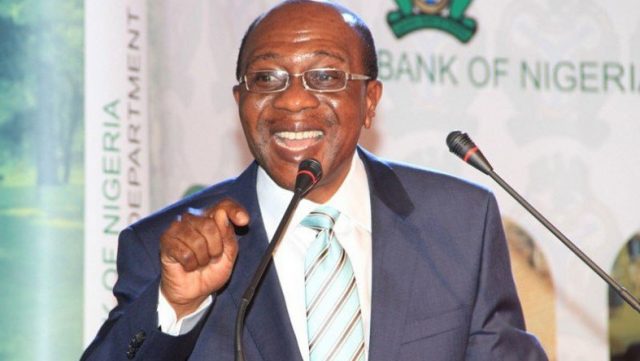The Central Bank of Nigeria (CBN) on Friday devalued the naira to N380 to a dollar and also unified several exchange rates in the interest of the economy.
The devaluation came after years of push from the World Bank and International Monetary Fund, local and foreign investors that the local currency to be devalued in line with market realties.
They insisted that with drop in foreign exchange reserves and decline in Nigeria’s dollar earnings over fall in crude oil prices, Nigeria had no option than to devalue its currency. The crude oil prices has dropped to $28 per barrel, the lowest in nearly three years. Nigeria gets over 95 per cent of its foreign exchange earnings from crude oil sales.
Aside devaluing the naira, the CBN also adopted a unified exchange rate, and pushed the official rate of the naira to N376 to dollar for International Money Transfer Operators rate to banks; N377 to dollar for banks’ dollar sale to CBN and pegged CBN’s dollar sales to banks at N378.
In a statement announcing the new rates for the naira signed by CBN Director, Trade and Exchange Department, O.S Nnaji, the CBN directed the bureau de change operators to sell to end users at not more than N380 to dollar.
The CBN also pegged the volume of sale for each BDC at $20,000.
The regulatory bank has moved the official rate to N360 to the dollar from N307 per dollar previously and now selling dollar to foreign portfolio investors (FPI) at N380 at the Investors’ & Exporters forex window from N366 per dollar previously.
The BDC operators are expected to buy dollar from the CBN at N378 per dollar, according to a circular sent to the BDC operators by the apex bank.
With this action, the regulatory bank has effectively unified the foreign exchange rates in the market in line with the recommendations of the World Bank and IMF.
“Please be advised that the applicable exchange rate for the disbursement of proceeds of IMTOs for the period Monday, March 23 to Friday, March 27, is as follows,” the CBN circular signed by the director of Trade and Exchange, O.S Nnaji stated.
There have been speculations in the market in recent time that the CBN may devalue the currency in view of the impact of the Coronavirus and the sharp drop in global oil prices.
The unification of the exchange rate has effectively end almost three years of multiple exchange rates in the market.
Before now, the country has about five different exchange rates; one for offshore investors at I&E window, the other for the official window, another one for the interbank, while the bureau de change operators rate was also different from the rest.
Speaking with The Nation on the development, President, Association of Bureaux De Change Operators of Nigeria (ABCON), Alhaji Aminu Gwadabe, said the move by the CBN will assuage the fears of portfolio investors, reduce rent-seeking in the foreign exchange market, serve ad deterrent to currency hoarding and mitigate revenue shortfalls for the economy.
Gwadabe said: “I called it exchange rate unifications. And it is going to assuage the fears of portfolio investors, reduce rent-seeking in the foreign exchange market, serve ad deterrent to currency hoarding and mitigate revenue shortfalls for the economy”.
The IMF had advised the CBN to stop defending the naira through dollar interventions and adopt a unified exchange rate regime.
The Mission Chief for Nigeria, Amine Mati said: “The pace of economic recovery remains slow, as declining real incomes and weak investment continue to weigh on economic activity. Inflation – driven by higher food prices – has risen, marking the end of the disinflationary trend noticed in 2019. External vulnerabilities are increasing, reflecting a higher current account deficit and declining reserves that remain highly vulnerable to capital flow reversals.”
According to him, the exchange rate has remained stable, helped by steady sales of foreign exchange in various windows.
“The mission reiterated its advice on ending direct CBN interventions, securitising overdrafts to introduce longer-term government instruments to mop up excess liquidity and moving towards a uniform and more flexible exchange rate. Removing restrictions on access to foreign exchange for the 42 categories of imported goods would be needed to encourage long-term investment,” he said.



